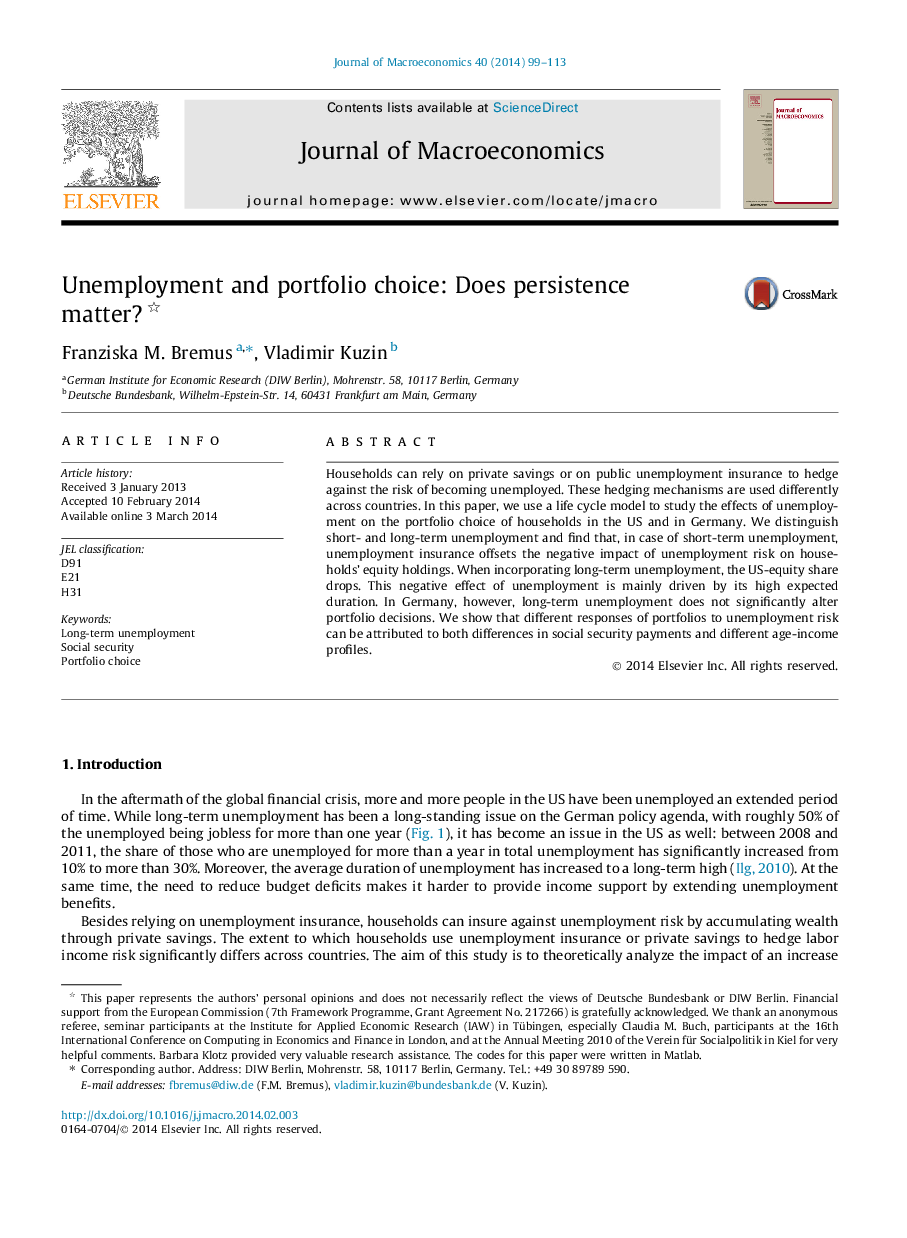| Article ID | Journal | Published Year | Pages | File Type |
|---|---|---|---|---|
| 965381 | Journal of Macroeconomics | 2014 | 15 Pages |
Abstract
Households can rely on private savings or on public unemployment insurance to hedge against the risk of becoming unemployed. These hedging mechanisms are used differently across countries. In this paper, we use a life cycle model to study the effects of unemployment on the portfolio choice of households in the US and in Germany. We distinguish short- and long-term unemployment and find that, in case of short-term unemployment, unemployment insurance offsets the negative impact of unemployment risk on households' equity holdings. When incorporating long-term unemployment, the US-equity share drops. This negative effect of unemployment is mainly driven by its high expected duration. In Germany, however, long-term unemployment does not significantly alter portfolio decisions. We show that different responses of portfolios to unemployment risk can be attributed to both differences in social security payments and different age-income profiles.
Related Topics
Social Sciences and Humanities
Economics, Econometrics and Finance
Economics and Econometrics
Authors
Franziska M. Bremus, Vladimir Kuzin,
